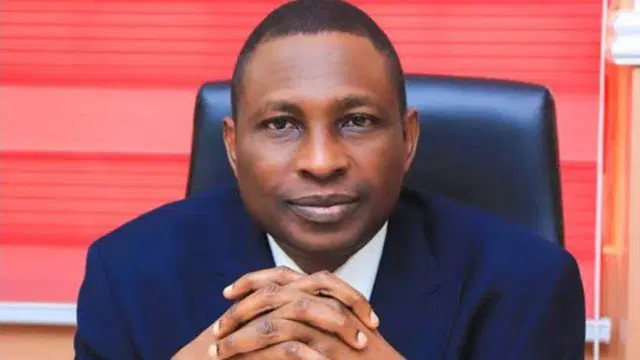Judicial Hurdles in Nigeria’s Fight Against Corruption
Judicial Hurdles in Nigeria’s Fight Against Corruption
By Matthew Eloyi
The recent remarks by Ola Olukoyede, Chairman of the Economic and Financial Crimes Commission (EFCC), underscore the persistent legal challenges facing Nigeria’s anti-corruption efforts.
Speaking at the 6th EFCC/National Judicial Institute capacity-building workshop, Olukoyede called for deeper collaboration between the judiciary and anti-corruption agencies, highlighting court orders that have blocked investigations in at least 10 states as a major concern.
This issue reveals a fundamental obstacle in the country’s anti-graft campaign: the misuse of judicial mechanisms to stall investigations and prosecutions.
According to Olukoyede, high-profile corruption suspects frequently obtain court injunctions to shield themselves from scrutiny, with some states actively preventing the EFCC from carrying out its mandate.
While court orders are vital to upholding the rule of law, their use to protect those accused of corruption raises questions about the balance between due process and justice.
One of the most troubling revelations from Olukoyede’s speech is the growing trend of suspects rushing to court for orders restraining the EFCC from investigating, interrogating, or arresting them.
The inability of the commission to pursue investigations in 10 states demonstrates how systemic corruption is exploiting legal loopholes to evade accountability.
This misuse of judicial protections threatens to undermine public confidence in Nigeria’s legal system and encourages a culture of impunity.
The frequent adjournments of corruption cases and conflicting court orders further compound the issue. Olukoyede’s frustration reflects broader concerns about how technicalities and procedural delays are often weaponised by defense teams to frustrate justice.
This is particularly worrisome in high-profile cases where the stakes are higher, and the expectation for swift and decisive justice is most critical. By delaying proceedings, such tactics not only prolong cases but also erode the public’s trust in the judicial system’s ability to deliver justice.
Moreover, the EFCC chairman’s lament about “intemperate contempt orders” directed at the commission’s leadership suggests that attempts to hold corrupt individuals accountable are being met with resistance not only from the accused but also from sections of the judiciary.
This raises an uncomfortable question: to what extent are elements within the judiciary complicit, either knowingly or inadvertently, in shielding corruption suspects from investigation and prosecution?
Olukoyede’s appeal for a “patriotic and courageous” judiciary is, therefore, crucial. Without judicial officers committed to curbing corruption, Nigeria’s anti-corruption drive will remain hamstrung. The judiciary plays an indispensable role in ensuring justice is served, and its collaboration with the EFCC and other agencies is essential in dismantling the structures that allow corruption to flourish.
To address these challenges, judicial reforms are imperative. The legal framework that enables suspects to obtain injunctions against investigations must be reviewed to prevent its abuse. Strengthening the independence of judges and providing them with the necessary resources and support to handle corruption cases expeditiously is also crucial.
Additionally, the establishment of specialised courts or the designation of certain judges to hear only corruption cases, as Olukoyede mentioned, is a step in the right direction but must be accompanied by broader systemic changes.
In conclusion, the EFCC’s struggle with judicial roadblocks highlights a critical area in Nigeria’s anti-corruption efforts. The judiciary’s role in this fight cannot be overstated. Without a unified and transparent approach, where courts do not inadvertently protect those accused of corruption, the campaign against graft will be severely compromised.
For Nigeria to make meaningful progress in this area, the judiciary must rise to the occasion, aligning its processes with the broader national interest of promoting transparency, accountability, and justice.

